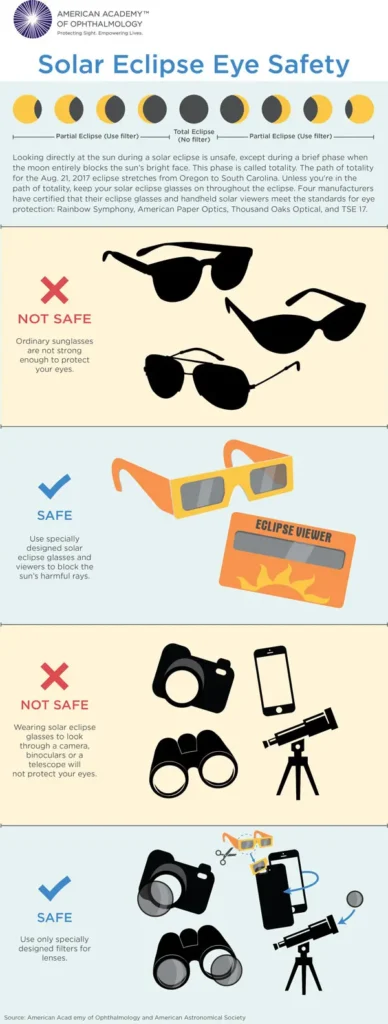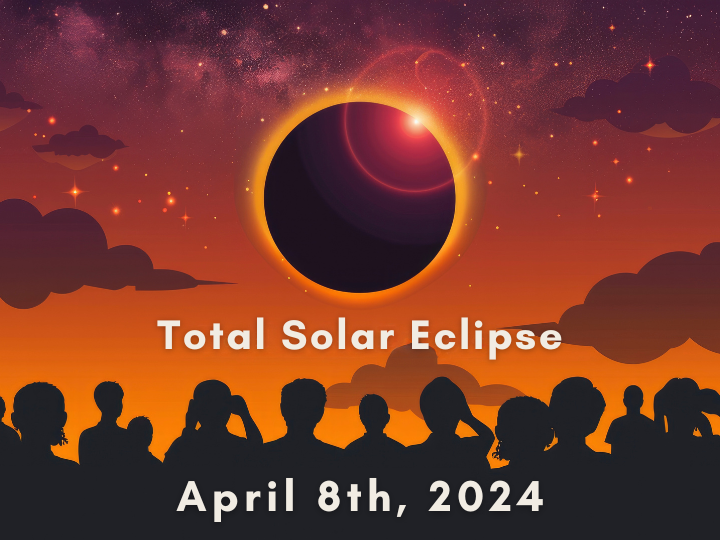With the excitement surrounding the upcoming solar eclipse, it’s essential to prioritize eye safety to prevent potential vision damage. Dr. Tanuj Banker, Retina Specialist at Center For Sight, sheds some light on a crucial concern related to eclipses: solar retinopathy.
Solar retinopathy occurs when the sun’s harmful ultraviolet (UV) radiation damages the retina—a delicate tissue lining the back of the eye responsible for capturing light and sending visual signals to the brain. Directly staring at the sun, especially during an eclipse, can lead to irreversible damage to the retina, causing symptoms such as blurry vision, distorted vision, or even permanent vision loss.
To safeguard your eyes during the solar eclipse, it’s crucial to adhere to safe viewing practices recommended by organizations like the American Academy of Ophthalmology (AAO):
Use Certified Solar Eclipse Glasses: Ensure you’re using eclipse glasses that meet the international safety standards (ISO 12312-2) for solar filters. These glasses are specifically designed to block out harmful UV, visible, and infrared radiation.
Inspect Your Glasses: Before using eclipse glasses, carefully inspect them for any signs of damage, such as scratches, punctures, or warping. Even small defects can compromise their effectiveness at protecting your eyes.
Avoid Homemade Filters: Resist the temptation to use homemade filters or improvised viewing methods, such as sunglasses, smoked glass, or CDs. These makeshift solutions do not provide adequate protection from the sun’s harmful rays.
Use Indirect Viewing Methods: If you don’t have access to certified eclipse glasses, consider using indirect viewing methods, such as pinhole projectors or solar viewing binoculars. These methods allow you to observe the eclipse without directly exposing your eyes to the sun.
Limit Direct Sun Exposure: Even with proper eye protection, it’s best to limit direct sun exposure to brief intervals during the eclipse. Prolonged viewing can increase the risk of eye strain and damage.
As we anticipate the awe-inspiring spectacle of the solar eclipse, let’s also prioritize the health and well-being of our eyes. By following these safety tips and understanding the risks of solar retinopathy, we can enjoy this rare celestial event while safeguarding our vision for the future.
For more information on solar eclipse eye safety, I encourage you to visit the AAO’s helpful resources:
Remember, your vision is irreplaceable—let’s ensure it remains protected during this remarkable astronomical event. If you have any concerns about your eye health or experience any unusual symptoms following the eclipse, don’t hesitate to reach out to our team at Center For Sight for expert care and guidance.








